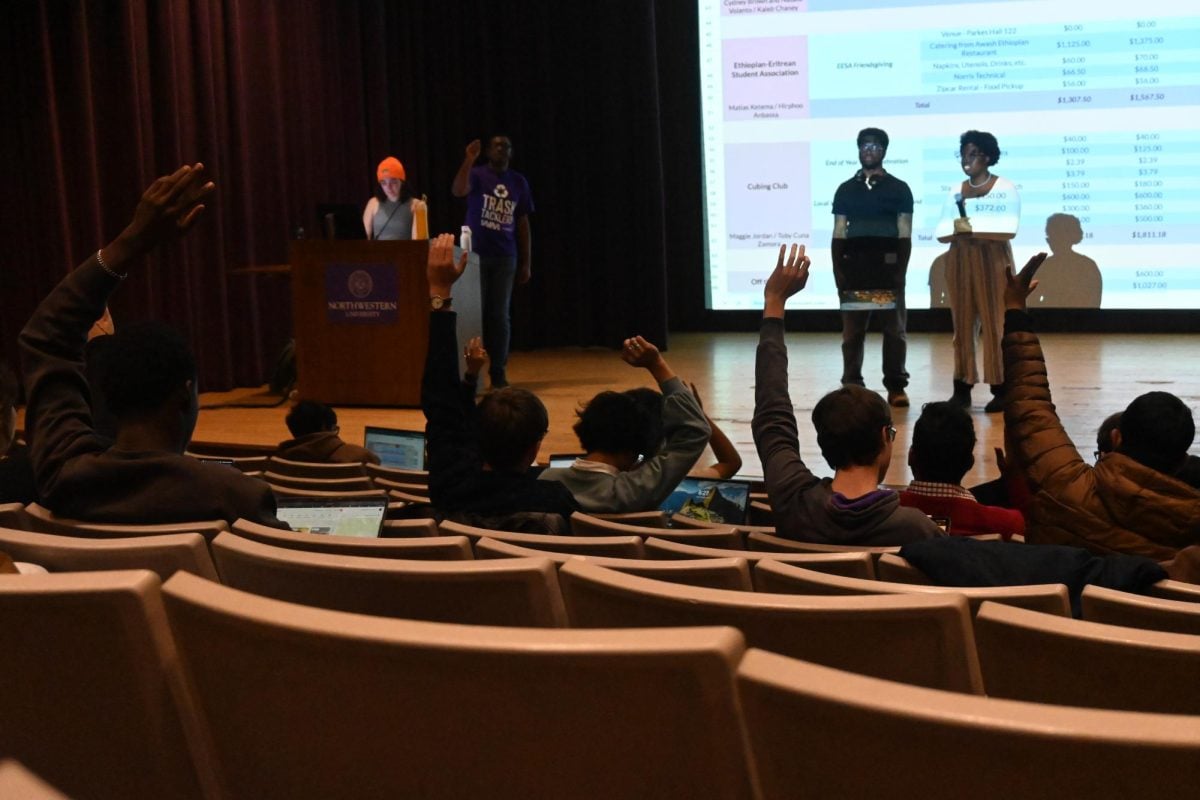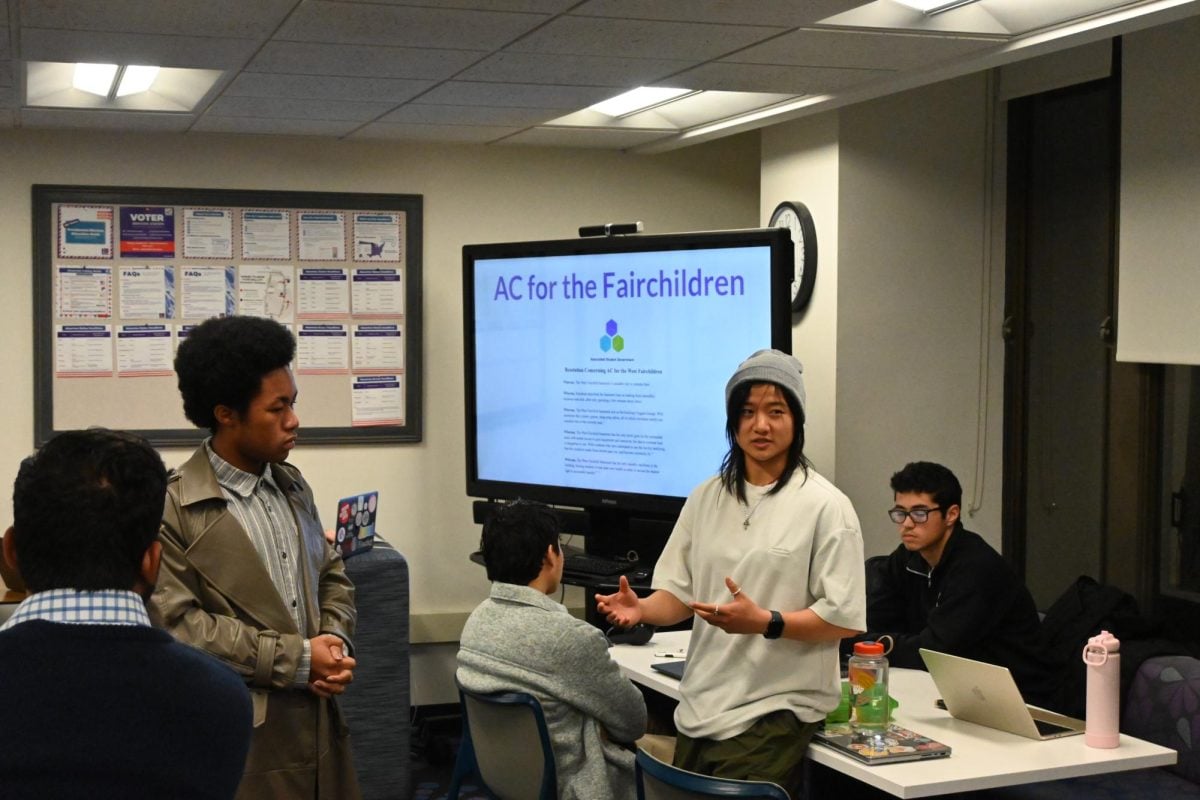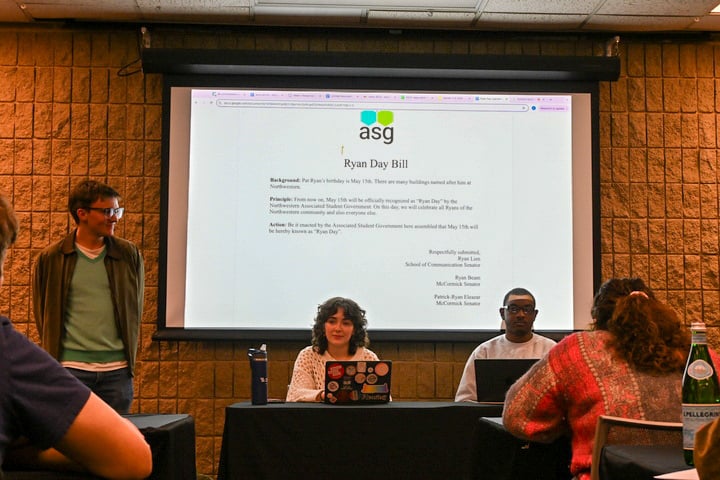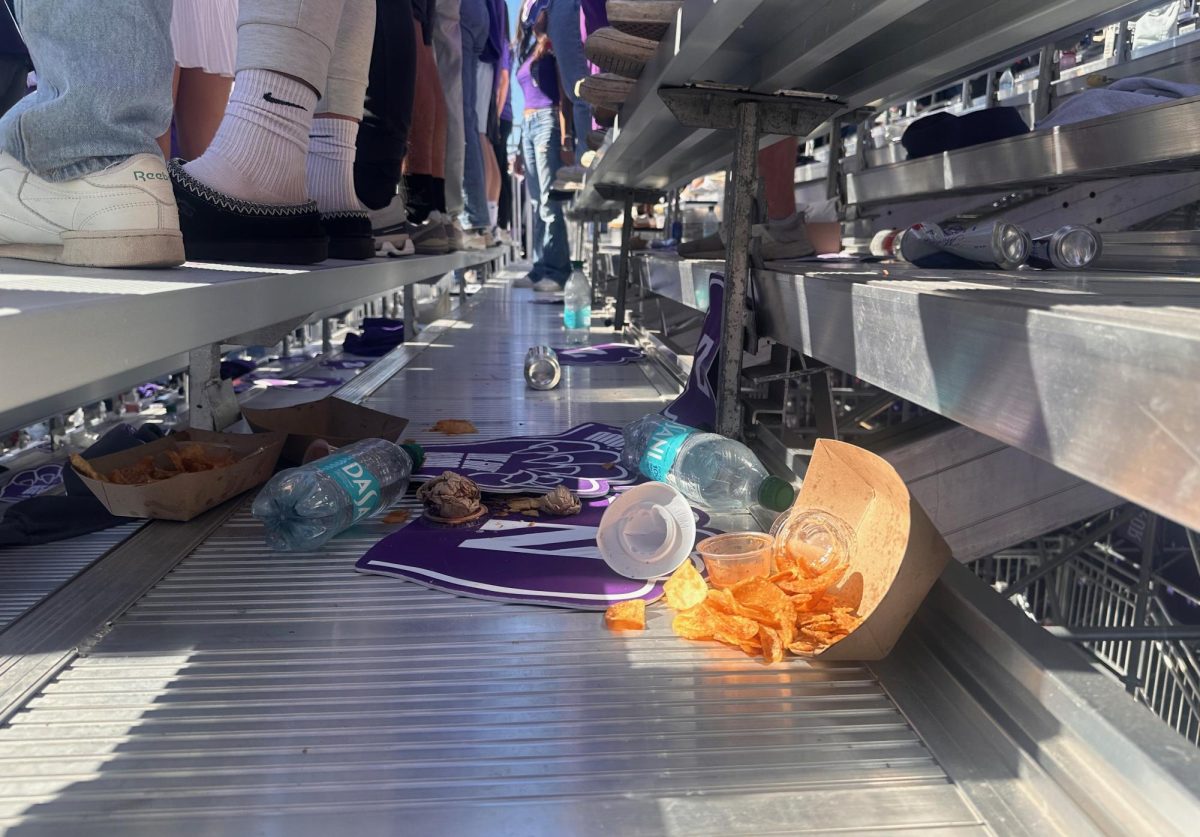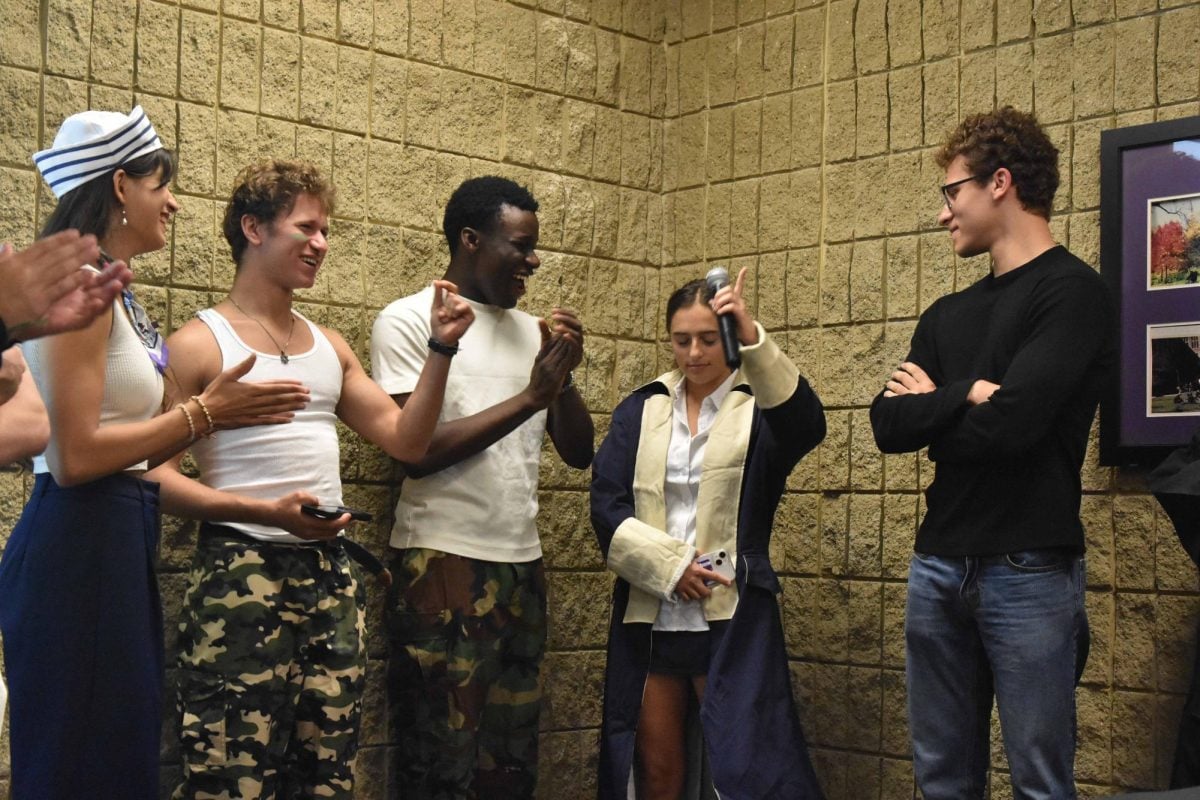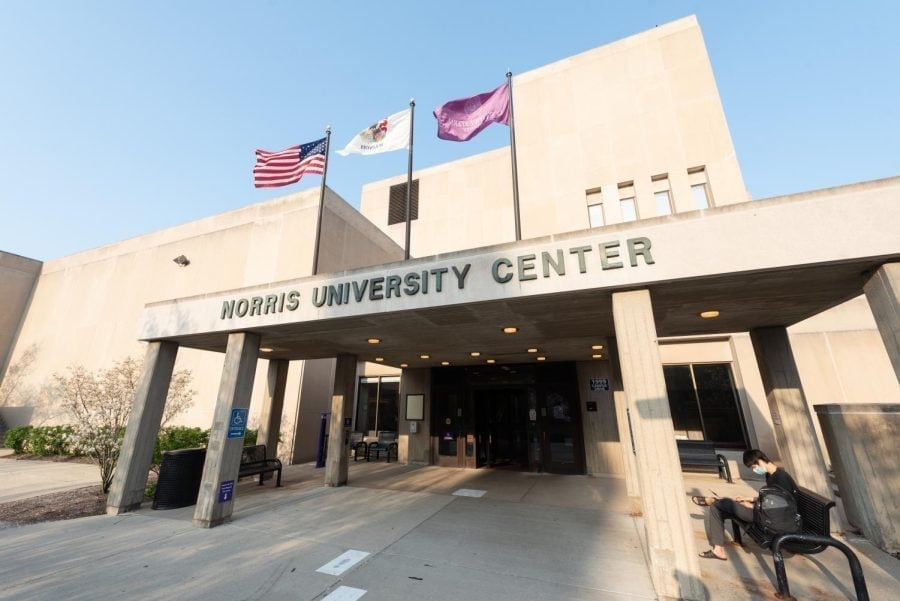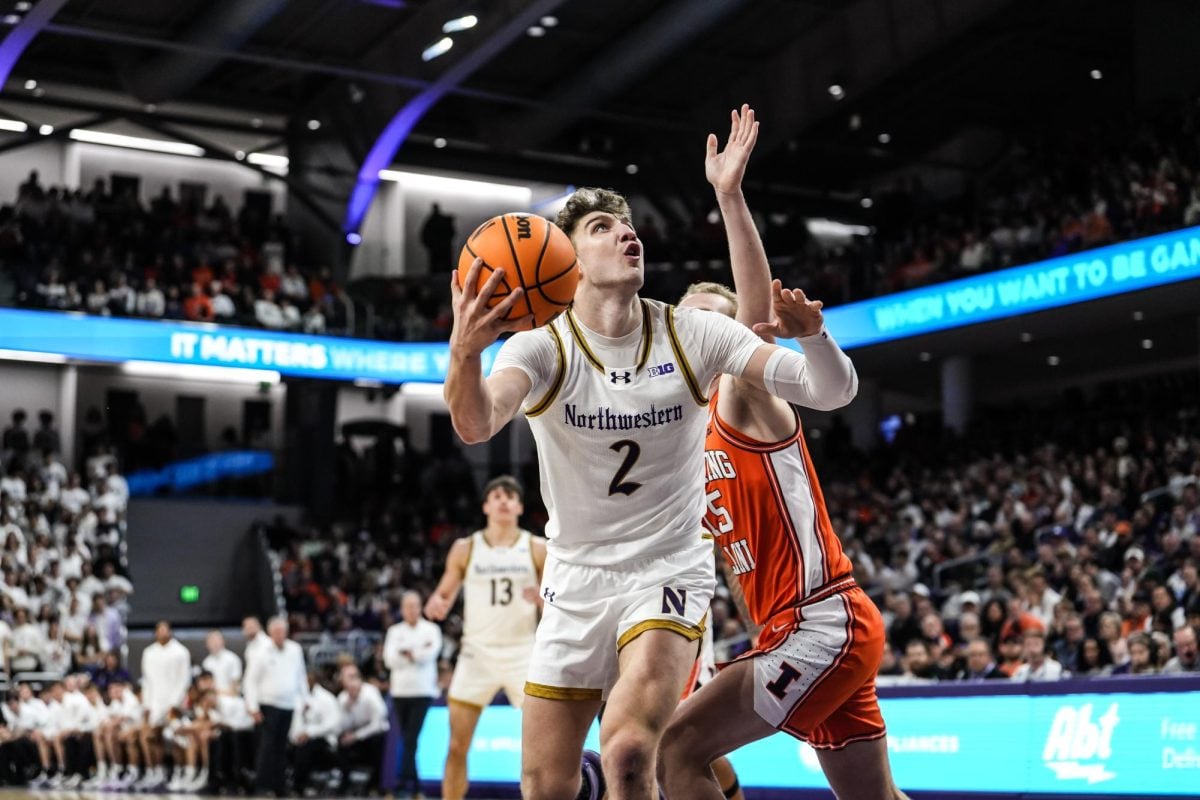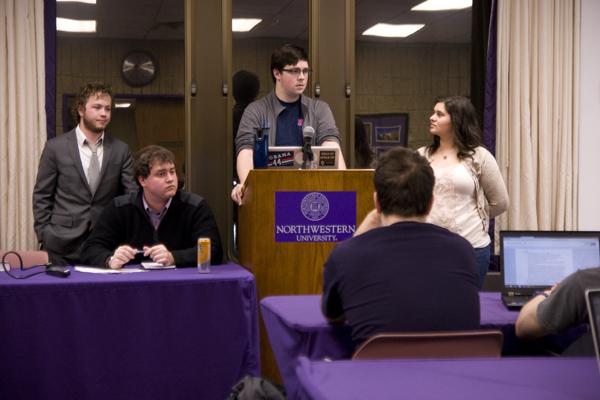
Associated Student Government passed resolutions at Wednesday’s meeting in support of funding for sustainability, commemoration of former Northwestern men’s basketball coach Ricky Byrdsong and ASG campaign reforms.
In his presentation of the resolution, “Sustainability Fund,” which passed Wednesday, bill co-author Mark Silberg announced to ASG that the Office of Budget and Planning is considering an appropriation of $50,000 to the fund.
The resolution supports the appropriation, which will go toward student-led sustainability projects that engage the campus in renewable energy development. The ASG Sustainability Committee has worked with the Office of Sustainability to solidify the logistics of how stakeholders, including ASG, administration, faculty, staff and students, will supervise and allocate the Sustainability Fund.
“The focus is clearly on students and improving undergraduate students’ experience in sustainability,” said Silberg, a Weinberg junior and ASG’s associate vice president of sustainability, at Feb. 27’s Senate meeting. “It can be anything from students attending UN conferences … to renewable energy projects.”
The University had a similar fund about five years ago, according to ASG president Victor Shao, co-author of the resolution. The one-time investment gradually died off with no tangible long-term influence, the Weinberg senior said at the Feb. 27 meeting. He said the new fund would be different because of the support from the recently created Office of Sustainability.
Another resolution, “Honoring Ricky Byrdsong,” was only supposed to be introduced, but senators voted to pass the legislation early. The resolution urges the University to work with the Byrdsong family, Evanston and other “multicultural and social justice student organizations” to commemorate the former basketball coach, a black man who was shot and killed in a drive-by shooting by a white supremacist in 1999.
“This is not about Northwestern,” said Paul Jackson, author of the resolution. “This is about how Northwestern should be more not about Northwestern.”
The Weinberg senior said he and the sponsors of the resolution felt inclined to create the legislation after hearing concerns from students that the majority of the NU community was not aware of Byrdsong’s incident.
“The way you set the tone for a community has a lot to do with memory, marking memory, a gesture of standing against racial hatred and violence, which is something that keeps recurring in Northwestern’s campus,” he said.
After multiple amendments and contentious debate, Senate also passed the bill, “Campaign Reform Recommendations,” which will implement multiple changes to ASG Code and Election Commission campaigning rules and apply to candidates running for ASG president and vice president, student life vice president and academic vice president. The Election Commission, a group of senators that Senate voted on during the meeting, will review the guidelines regarding its campaigning rules before implementing the bill’s recommendations.
The recommendations include amending the voting system to a secret preferential ballot, which will allow undergraduate students to rank the candidates rather than choosing one. Another significant reform requires the Election Commission to provide each candidate with a set of materials, which includes a total of 1,000 sheets of white paper, 50 sticks of chalk, 10 rolls of masking tape, $24 for printing in the Student Groups Resource Center and a basic template for a website. Another important change will define pre-campaigning as “actions taken by the candidate for the sole purpose of developing a platform.” This change allows prospective candidates to feel more comfortable meeting with campus leaders without fearing a violation of campaign guidelines, which prohibit candidates from soliciting support before campaigning begins, author Ian Coley said.
The Weinberg senior said he saw a need for the bill after multiple previous attempts at campaign reform had failed.
“We wanted to create a committee to look cohesively at the election guidelines and basically make them more clear in terms of complaints that had been brought up in the past so that the bill would have more than a snowball’s chance in hell of passing,” he said.
The changes will take effect for the 2013 ASG campaigning season, and the materials will be funded by the Senate Project Pool in 2013 and ASG Operating Budget in subsequent years.
Coley, an ASG senator, also proposed an emergency bill, “Norris Exam Relief,” which passed at the meeting. It takes $950 from the Senate Project Pool for leisure activities and items such as yoga breaks, slippers and pillows during finals week.
Before addressing any legislation, senators in the Academic and Education Working Group under the University Diversity Council presented the proposal for a Social Inequalities and Diversity curriculum, currently in a draft form. After the presentation, senators broke out into four discussion groups to examine questions about the proposal.
The meeting also marked the end of two executive board members’ terms and confirmation of their successors. After senators voted, Weinberg senior Girish Pendse, ASG financial vice president, stepped down and was succeeded by Weinberg junior Siddiq Ather. Weinberg senior Lauren Masterson, ASG student groups vice president, was succeeded by Weinberg junior Neel Lalkiya.
Members of Lending for Evanston and Northwestern Development proposed a bill asking for $3,000 from the Senate Project Pool that will be debated and voted on next week.
Correction: A previous version of this story misstated the positions of Girish Pendse and Lauren Masterson. They were on ASG’s executive board. Additionally, the story has been updated to clarify that the Office of Budget and Planning has not yet appropriated money to the Sustainability Fund. The Daily regrets the errors.






